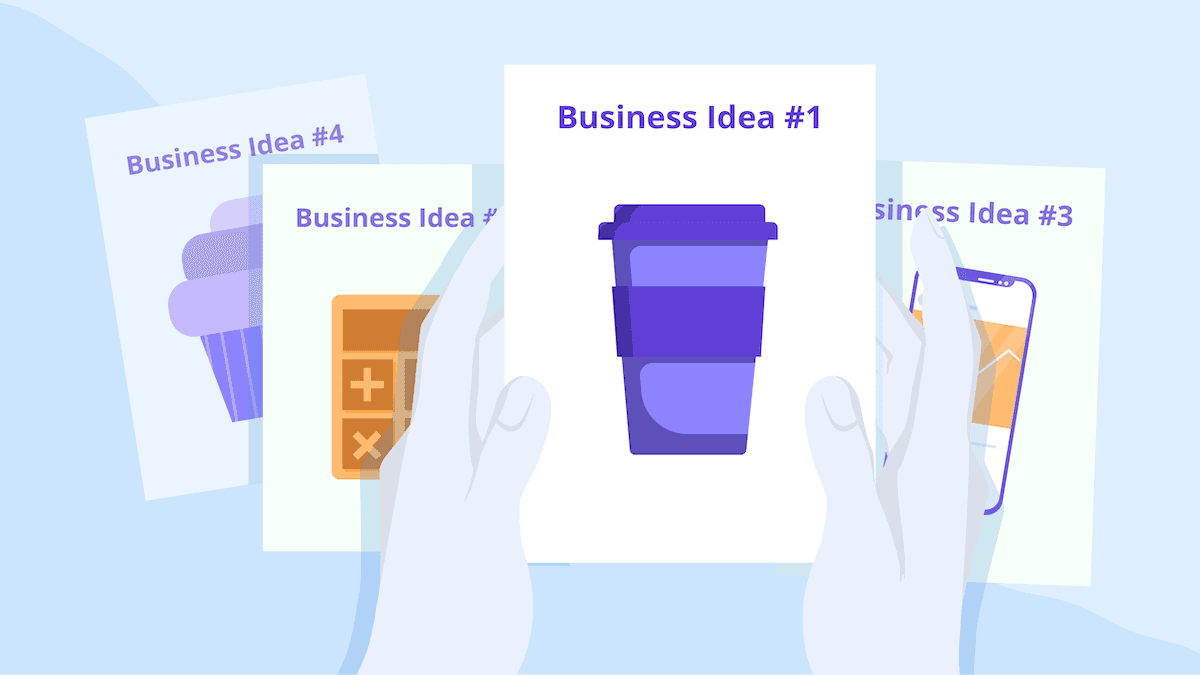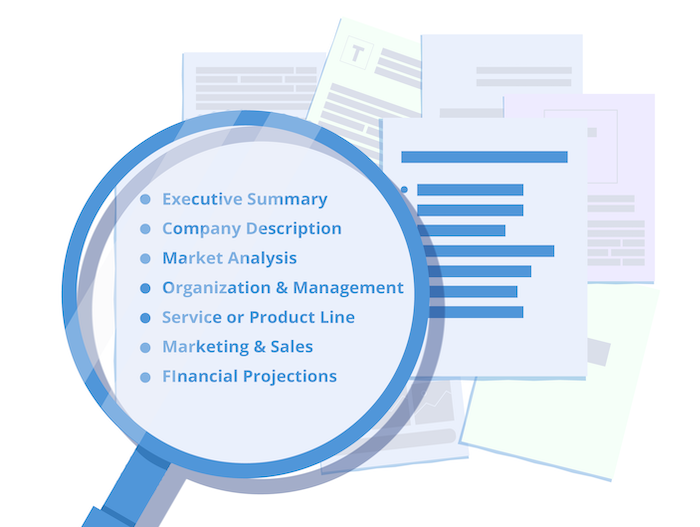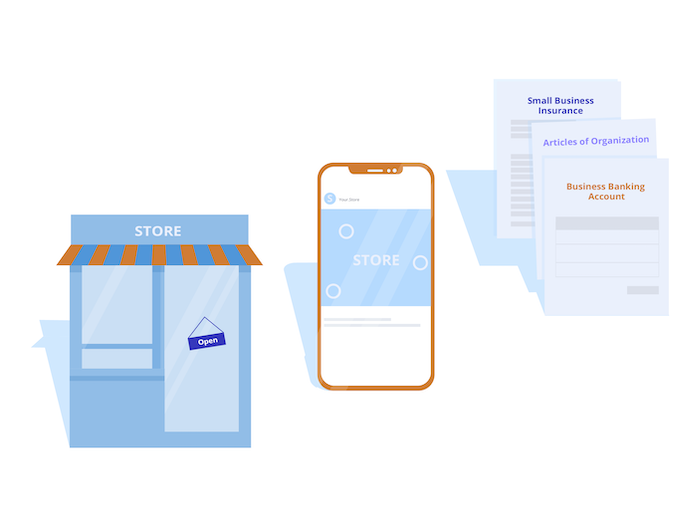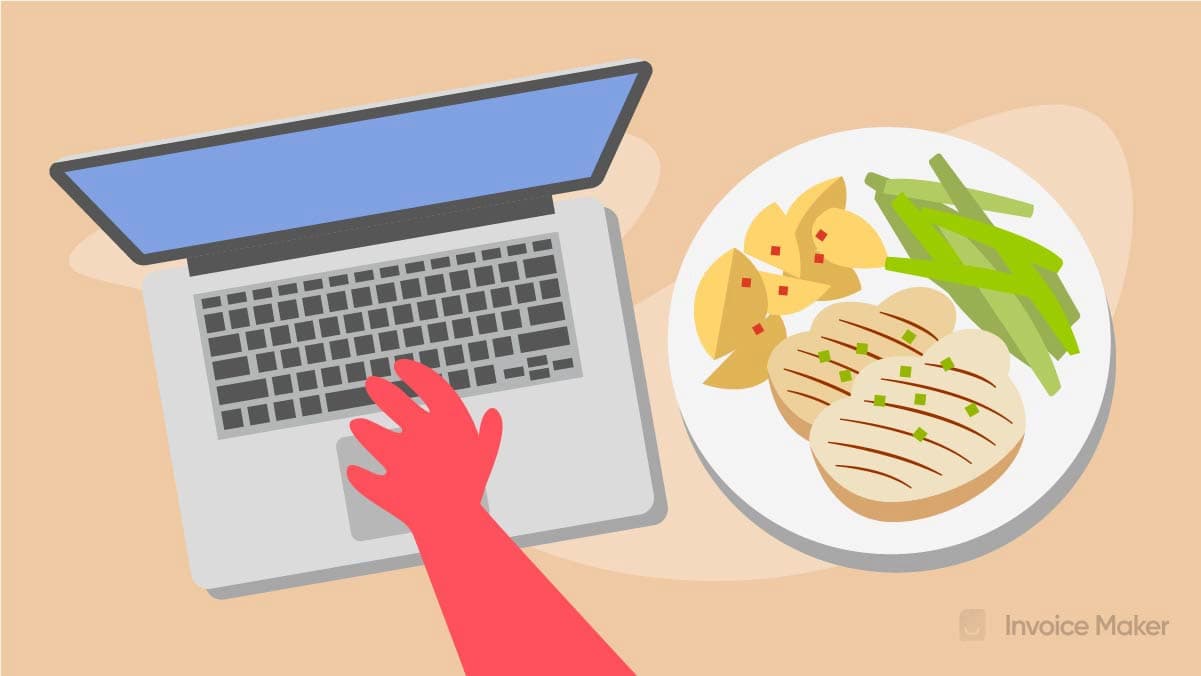How to Start a Small Business

There are many known appeals for becoming a small business owner — from doing work that you find fulfilling to being your own boss and creating a workplace culture that feels good to you. When you look around at local small businesses and internet solopreneurs, it becomes clear that the small business life is very much a viable possibility.
Make a Free Invoice NowBy 2026, it is estimated that there will be over 10 million self-employed workers in the U.S. Once you know what you want to do, the idea of doing it full-time, on your own terms, is thrilling. But exactly how do you go from “great idea” to “solvent small business”? Let’s look into it.
The Idea
To properly start a small business, you need to take your great idea and consider every angle on how to make it work. You might be an amazing baker, but just saying “I’m going to make cookies” is not a business plan.
To take your idea to the next level, first start by identifying exactly what it is you want to do. Ask yourself important questions, such as:
- What clients will you serve?
- What niche of which industry will you operate in?
- What price point will you set for your services?
- Where will your business be headquartered?
- Will you hire employees or professionals to support you?
- How will you attract business?
- What will your overhead and expenses be?
- Where will you get health insurance?
The best way to address these and other critical questions is by creating a formal business plan. You can DIY or use a business plan template service like LivePlan or PlanBuildr to help you format and design your plan.
A business plan should contain some combination of the below elements. (Some of them won’t be relevant to your business or situation, so take what you need and leave the rest.)

The Executive Summary
This is the part where you lay out a broad overview of your business as concisely as possible. You can think of it as the elevator pitch for the business.
Company Description
This is the section where you explain the concept of your business as elaborately as needed.
Market Analysis
This is the section where you demonstrate your business’s viability. Talk about marketing and advertising, sales forecasts, PR, and the businesses out there that will be your competitors.
Organization and Management
Who will work for your business? Include bios for all stakeholders, including yourself. If it’s just you, this part will be easy, but it’s a place to toot your own horn and show why you’re the person to do this work successfully.
Service or Product Line
What is it that you make or do?
Marketing and Sales
How will you get customers? How will you keep them? Put all of that strategy into this part.
Funding Requests
If you’re seeking investors, articulate what level of support you need, what you’ll use the investment capital for, what the repayment terms will be, and what degree of involvement and control you’re willing to cede in exchange for it.
Financial Projections
This is where all the numbers go, where you can provide details to support the claims you made earlier in the plan, including projections for your profits and losses.
Your First Clients/Customers
Your first clients or customers are critical to a new small business. People come to small business ownership from a variety of situations, each of which will funnel clients to you in a different way.
If You’ve Been Working for a Company
If you’ve built up years of experience and a body of work in your profession and now you’re hanging out your own shingle, you’re in a great position. You have a reputation, which is a huge asset (as long as it’s a good reputation!) that is impossible to purchase.
Depending on your industry, it may or may not be appropriate or ethical to bring your clients with you when you go out on your own. For example, if you’re a massage therapist or hair stylist, it is generally understood that clients will follow practitioners, based on the personal nature of the service provided. If, on the other hand, you’re a lawyer, the expectations are very different.
Take care with non-compete contracts and other legal documents you may have signed with your previous employer. You want to maintain good relations with your former employer (who can be an excellent source of work, references, and referrals). Stealing clients is a fast way to torpedo that goal, so transparency is the name of the game.
If you are able to bring previous clients with you, you’ll be starting out with billable work, which is the best-case scenario for a new business. If you’re not able to bring your clients with you, letting your former employer know that you are eager for referrals is a good second best.
If You’ve Been Side Hustling
If you’ve been working a 9-to-5 and freelancing on the side, the transition to running your small business should be reasonably smooth. You already have experience and clients — now you just need more of them.
Let all your clients know that you’re going fully out on your own and that you’re seeking new business. Marketing and advertising are important (more on that below), but the power of a personal referral is huge.
If You’re Starting a Totally New Venture
If you’re going from working for a boss at a day job to working for yourself with no overlap, you have some work cut out for you. You’ll have to pay more attention to marketing, advertising, and networking than someone who isn’t starting from scratch, so think about your community and connections (both online and IRL). This is the time to lean on them.
Building It Out

Getting set up as a small business owner takes a lot of forethought and preparation. The build-out phase is perhaps the most difficult one in the life of an entrepreneur, so know that you’re gearing up for a marathon.
Physical Space
Where will you conduct business? Whether it’s office space, a studio, a shop, or a garage, you may need a physical space to do your work, meet with clients, and keep your work equipment. Consider your needs, budget, and what’s available. Remember that with a physical space comes the need for furniture, insurance, and utilities.
Digital Presence
An online presence is nearly as important as an office. Best practices for digital identity are somewhat industry specific, but generally speaking, you’ll want to have a website as well as a portfolio, an Instagram, and a Twitter to help establish yourself online. Engaging with competitors and prospective clients on social media is a great way to start to build a platform.
Admin
This means everything else: opening a business banking account, setting up an LLC, getting small business insurance, making sure you have health insurance now that you’re not working for an employer. You may want to retain professionals like a lawyer, a bookkeeper, and an accountant as well.
Hiring Help
When it comes to initial investments, there are two general schools of thought: invest everything you can spare to give your business its greatest chance of success, or pinch your pennies in anticipation of a long lean period.
If you’re in the former camp (or if help is a non-negotiable part of your business plan), you’ll need to think about who and how to hire, and to articulate the role(s) you’ll be filling. If you’ve never been an employer before, know that it is not as easy as picking someone from Indeed.com and signing their paychecks. Leading people is a skill, and it’s one that grows with experience. It’s a great idea to check out business leadership books like Simon Sinek’s Start With Why in your (nonexistent, we know) free time.
The more detailed you are about the position you’re hiring for, the better your chances of finding a great fit on the first try. Be clear about the tasks at hand, and also about expectations in terms of work culture: Do you care about things like timeliness and dress code, or will you be more of a “just get the work done” kind of boss?
Asking around your business and social networks is a great way to get a personal recommendation. If that doesn’t turn anything up (or if the work you need done is highly specialized), job boards like LinkedIn and Indeed can be full of gems, if you’re willing to put the time in to read a ton of resumes. If your need for help is inconsistent, freelancer boards like Upwork can help you find someone for contract work.
Don’t forget that if you have an employee — even just one — you are legally required to carry workers’ compensation insurance.
It Gets Easier
As a new small business owner, overwhelm is par for the course. You’re wearing all the hats now, and most of them are new. In time, you’ll learn how to manage the day-to-day more efficiently, and in the meantime, focus on keeping your business practices solid and surviving the first year. You’ve got this!


